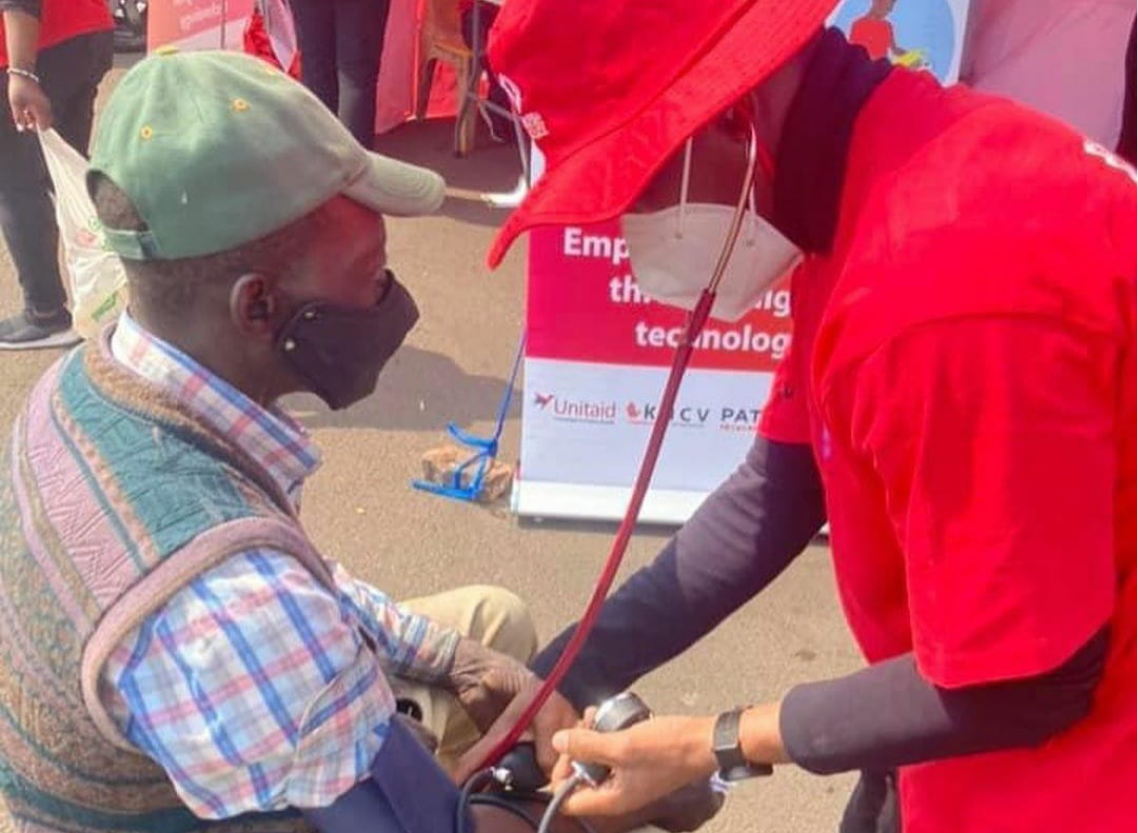ASCENT South Africa recently held a campaign in the busy Tshwane’s inner city “Marabastad”, aimed at tuberculosis (TB) case finding and community education on the use of digital adherence technologies (DATs) to improve TB treatment outcomes. The ASCENT South Africa team brought the slogan “Working together to end TB” to life, adopting a dynamic idea from the community advisory board (CAB) to do community outreach activities.
Nontobeko Mokone, the study coordinator for the Tshwane district, said the idea for the campaign came from a member of the ASCENT Community Advisory Board, who had done a similar smaller drive in their area. “It really brings to life the slogan; ‘Working together to end TB.’ We partnered with the Department of Health, who supplied the equipment such as the testing tubes and kits.” The team was joined by CAB members, TB tracers and doctors from the Folang Clinic, where they set up in a high foot traffic area – offering TB screening and facilitating the testing of patients found to have TB symptoms. The doctors also screened and offered point of care testing for other chronic ailments.

“These types of campaigns are crucial. We are meeting people where they are, and helping to detect TB early so patients can start treatment in time and adhere to treatment, therefore curb the spread of TB. It also gives us an opportunity to educate the community about DATs,” said Mokone.
“Community outreach activities are at the heart of public health, and are the essence of patient centred approaches”, said Nontobeko Ndlovu, the programme manager for ASCENT South Africa. “Community-based service delivery and community involvement are critical in improving the reach and sustainability of TB interventions”, she added.
The ASCENT project
The ASCENT project, implemented by The Aurum Institute in South Africa, aims to help TB patients to successfully complete their course of treatment using DATs, such as smart pill boxes linked to a central web-based platform.
Since project implementation in February 2021, ASCENT South Africa has provided digital adherence support to 1258 participants on TB treatment, in over 80 participating healthcare facilities in 5 districts, which include Tshwane, Ekurhuleni, City of Johannesburg, Bojanala, and Western Cape’s West Coast district. The project aims to reach more than 90% patients initiated on TB treatment at participating facilities up to the end of 2022.
The Unitaid funded and supported ASCENT project in South Africa is led by KNCV Tuberculosis Foundation together with The Aurum Institute and in partnership with London School of Hygiene & Tropical Medicine, and PATH.

